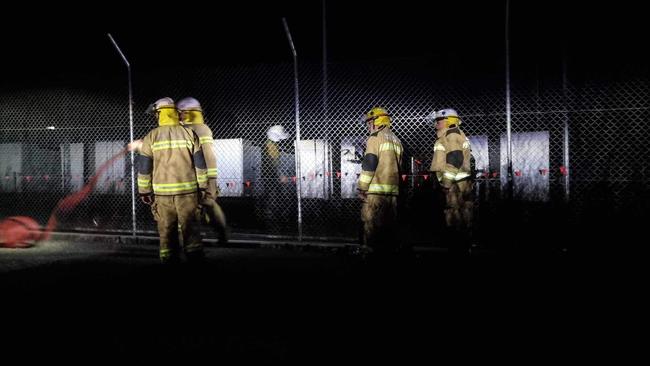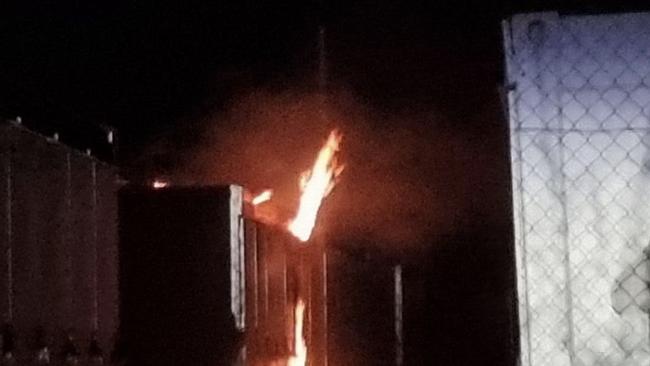What caused Tesla battery fire at Bouldercombe Battery Project
Tesla will provide two replacement batteries after damage was caused to two Megapack units in a fire at the Bouldercombe Battery Project in September.
Rockhampton
Don't miss out on the headlines from Rockhampton. Followed categories will be added to My News.
More than a month after a Tesla battery caught fire at a substation near Rockhampton, preliminary investigations have revealed the cause of the “low intensity” blaze.
One of the Tesla Megapack units at the Genex Power’s $60 million Bouldercombe Battery Project caught alight on the night of September 26, with five fire crews rushing to the blaze.
The fire burnt out itself, with firefighters forced to remain nearby monitoring it rather than putting it out.
In an ASX statement, Genex Power provided a commissioning update on the project and said the company had been working with Tesla to find the root cause of the fire.

The statement said an initial analysis was undertaken remotely by Tesla before it was sent to a testing facility in Melbourne for a physical inspection.
“The preliminary RCA indicates that a fault occurred on the AC side of the Megapack unit,” the statement says.
“The fault then propagated to the battery modules within the Megapack. The burn of the Megapack followed design and certification testing expectations under UL9540A, with no external water required, and no propagation of the active fire to adjacent Megapack units or balance of plant.
“The failure has been isolated to the power electronics interface with the AC bus bar in the individual Megapack unit itself and not the boarder installation of Megapack units.”
The statement said to mitigate against a “further event”, Tesla would replace two identified power electronics units and, out of caution, carry out a physical inspection of the power electronics in the other units on site.
Genex will also implement upgrades to breaker control setting response times for further mitigation measures.

The statement said the cost to carry out testing and replace the damaged Megapack batteries was being solely carried by energy giant Tesla.
“Following further diagnostic analysis, Tesla has advised that the Megapack unit adjacent to the impacted Megapack has suffered some minor thermal damage to its electrical insulation,” the statement says.
“Out of caution, the final tests and operations (of the Bouldercombe Battery Project’s commissioning) will therefore recommence utilising 38 of the 40 Megapack units.
“This final commissioning is expected to be completed and operations to commence by mid-November 2023. Tesla will provide two replacement Megapack units which have been shipped and are expected to arrive and complete installation and final testing in early December 2023.”




